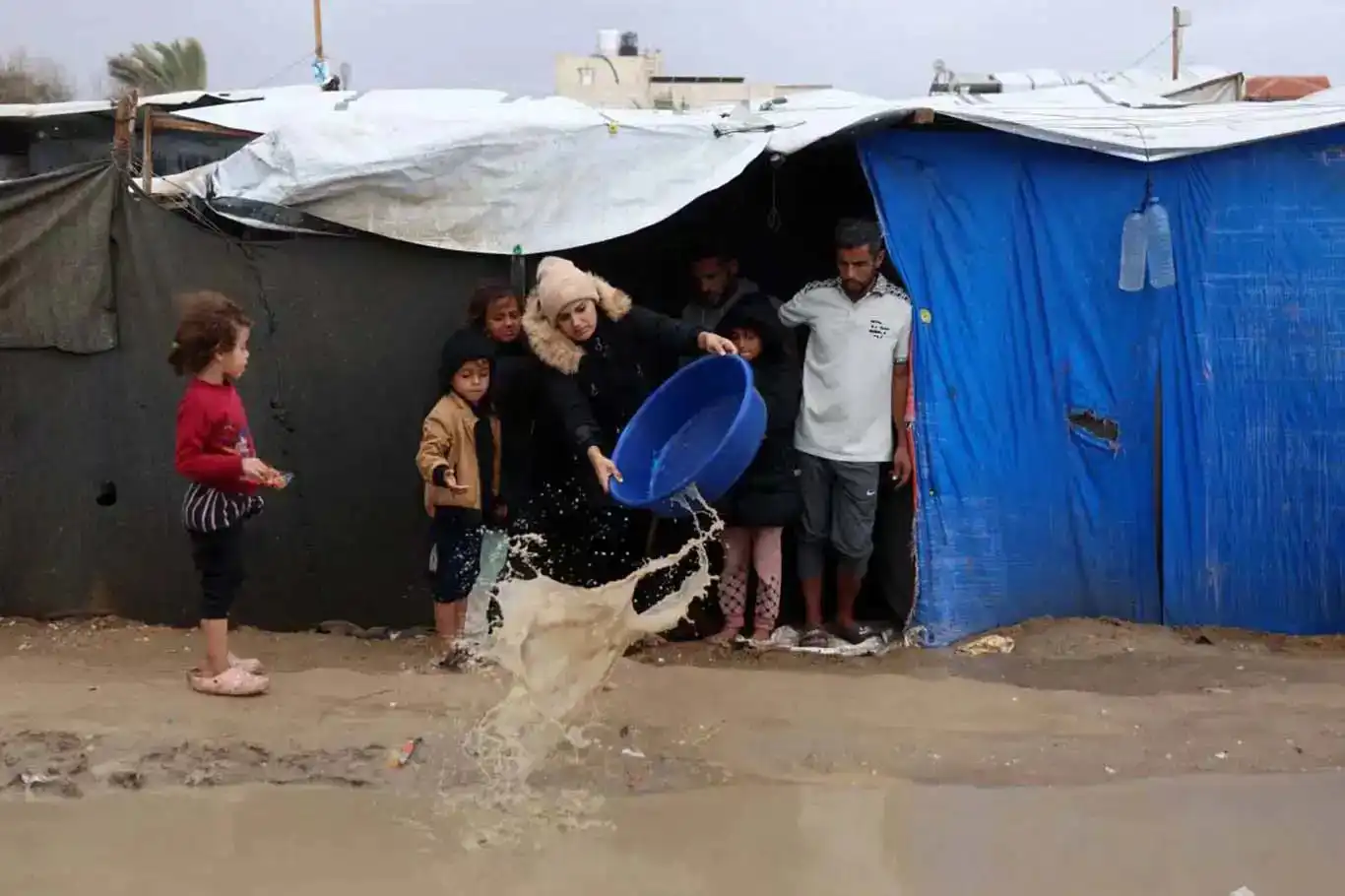Heavy rains flood Gaza tent camps, triggering fears of new humanitarian disaster


Heavy rainfall has flooded tent camps in southern Gaza, raising urgent warnings from local officials that even a single night of rain could put thousands of displaced Palestinians in immediate danger due to the region’s collapsed infrastructure.
After 25 months of continuous bombardment and widespread destruction, Gaza’s basic services have deteriorated to the point where routine seasonal weather now poses life-threatening risks. Municipal authorities in Khan Younis reported that damaged roads, uprooted trees and broken sewage systems have left the area extremely vulnerable to flooding and landslides.
Khan Younis Municipality spokesperson Saib Lukan said the city is unable to withstand even moderate rainfall. “One night of rain could turn the tents and coastal areas into a disaster zone,” he warned, noting that winter conditions could rapidly overwhelm what remains of Gaza’s infrastructure.
Officials estimate that around 15 million tons of debris remain scattered across the Strip, blocking access roads and severely limiting emergency response operations. Municipal assessments indicate that 85% of Gaza’s water, sewage and road networks have been destroyed or rendered unusable.
Fuel shortages are worsening the crisis. Authorities confirmed that just 16,000 liters of diesel remain available for operating sewage and wastewater systems—enough for only about three days. Without fuel, pumping stations would shut down, causing sewage to overflow into crowded tent camps and increasing the threat of disease outbreaks.
Past winters have shown how destructive heavy rainfall can be for makeshift shelters, and conditions are now significantly worse. According to recent municipal data, 93% of tents housing displaced families are no longer suitable for protection. Camps in Khan Younis and Deir al-Balah have already reported flooding, damaging bedding, food supplies and essential household items.
Health workers are warning of potential outbreaks of waterborne illnesses as rainwater mixes with sewage in densely populated areas. Clinics, already short on medical supplies, say they may be unable to handle a surge in cases if floodwaters continue to spread.
Khan Younis Municipality urged international organizations to provide immediate assistance, including mobile water pumps, emergency response equipment, debris-removal machinery and stable fuel deliveries. Officials say these measures are critical to preventing a large-scale humanitarian collapse.
Lukan appealed for urgent global intervention, saying, “A single night of rainfall is enough to threaten thousands of lives. The world must intervene before this crisis turns into an even greater disaster.”
With rainfall intensifying across the Gaza Strip, aid workers and residents warn that millions of displaced Palestinians—many living in fragile tents—could face severe and potentially deadly conditions in the coming days. (ILKHA)
LEGAL WARNING: All rights of the published news, photos and videos are reserved by İlke Haber Ajansı Basın Yayın San. Trade A.Ş. Under no circumstances can all or part of the news, photos and videos be used without a written contract or subscription.
Hungary will challenge the European Union’s plan to phase out all Russian oil and gas by 2027 and take the case to the European Court of Justice, Prime Minister Viktor Orbán announced on Friday.
Tens of thousands of Palestinians gathered at the Aqsa Mosque in Jerusalem on Friday, boldly performing prayers despite harsh Israeli measures aimed at restricting access, particularly targeting young men.
Beijing confirmed the nation’s largest single gold discovery in decades, with newly identified reserves in Liaoning estimated to exceed €166 billion at current market prices.
Polish authorities have started work on a second border barrier along the country’s frontier with Belarus, according to reports from Polish media.